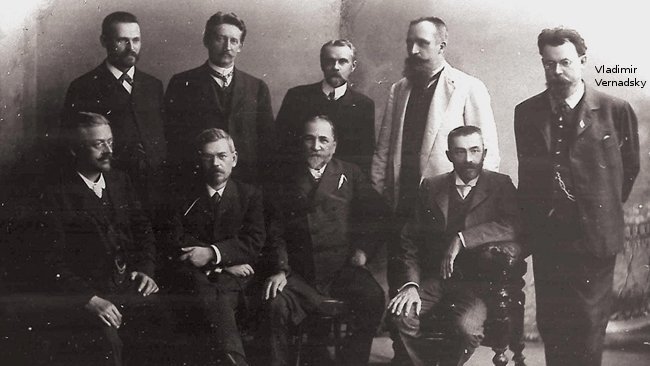|
|
Happy Birthday Vernadsky! The Inevitability of the Noösphere
12 March 2015
Today marks the 152nd birthday of a person who is likely known to regular visitors of the LaRouchePAC site, but a personality whose wise words have not had the impact they should. Vladimir Vernadsky, a Russian-Ukrainian scientist and founder of the science of biogeochemistry, lived until 1945, the middle of World War II, and despite the horrors of the war, he was steadfast in his belief that mankind would one day live as he should, with nations and cultures united in the development of what he called the Noösphere, the non-living and living world as controlled by the reason of man. In a soon to be published translation of a revolutionary piece by Vernadsky, called The Study of Life and the New Physics, Vernadsky examines some of the unique characteristics of life and human life. Vernadsky, unlike modern environmentalists, understood that the biosphere is evolving into increasingly more energetic states, and that species which survive, contrary to the ideas of Darwin, actually survive because they meet the requirements of this principle. Two principles which Vernadsky emphasized here and throughout his work summarize this idea. His first biogeochemical principle states that:
And the second:
Vernadsky believed that these requirements for life on Earth extended to man and his activity. In the midst of World War II, he marveled at how industry and technology had developed up until that point. He once visited the United States, and was struck by the pace of economic development. Vernadsky knew that man’s capabilities were distinct from those of other living things. He rightly saw that which is characteristic of man, and what makes man distinct from lower forms of life, is what should govern his actions. For example, as Vernadsky discusses in a later piece from 1938 called “Scientific Thought as a Planetary Phenomenon.”, mankind uniquely had the potential to discover and use fire. He was not given this capability only to live like a beast, ignorant of this. Even in 1930, well before the space age, he did not shy away from envisioning man as a creature of the Earth who is at the same time not bound to the Earth as other animals. In The Study of Life and the New Physics he writes: Vernadsky knew that man’s capabilities were distinct from those of other living things. He rightly saw that which is characteristic of man, especially what makes him distinct from lower forms of life, as what should govern his actions. Man did not have the potential to discover and use fire only to live like a beast, ignorant of this. Vernadsky wrote about this power in a later piece from 1938 called Even in 1930, he did not shy away from envisioning man as a creature of the Earth, but not bound to it. In The Study of Life and the New Physics he writes:
Where do we stand today with respect to Vernadsky’s vision? It is emphatically not the direction dictated by the outlook and policies of the Obama Administration, nor the Troika in Europe. Vernadsky, a patriot of Russia and Ukraine, would be disgusted by the antics of the likes of Victoria Nuland in bringing not only those two nations closer to war, but the world as a whole closer to a World War. On the contrary, the trajectory of policy and intention coming from China, from Russia, from the group of BRICS nations, does represent a commitment to develop the Noösphere. Projects such as the New Silk Road represent an uplifting of the natural territory of the great Eurasian landmass to support the development of mankind. On Vernadsky’s birthday, let us work to make his principled vision a reality. |



